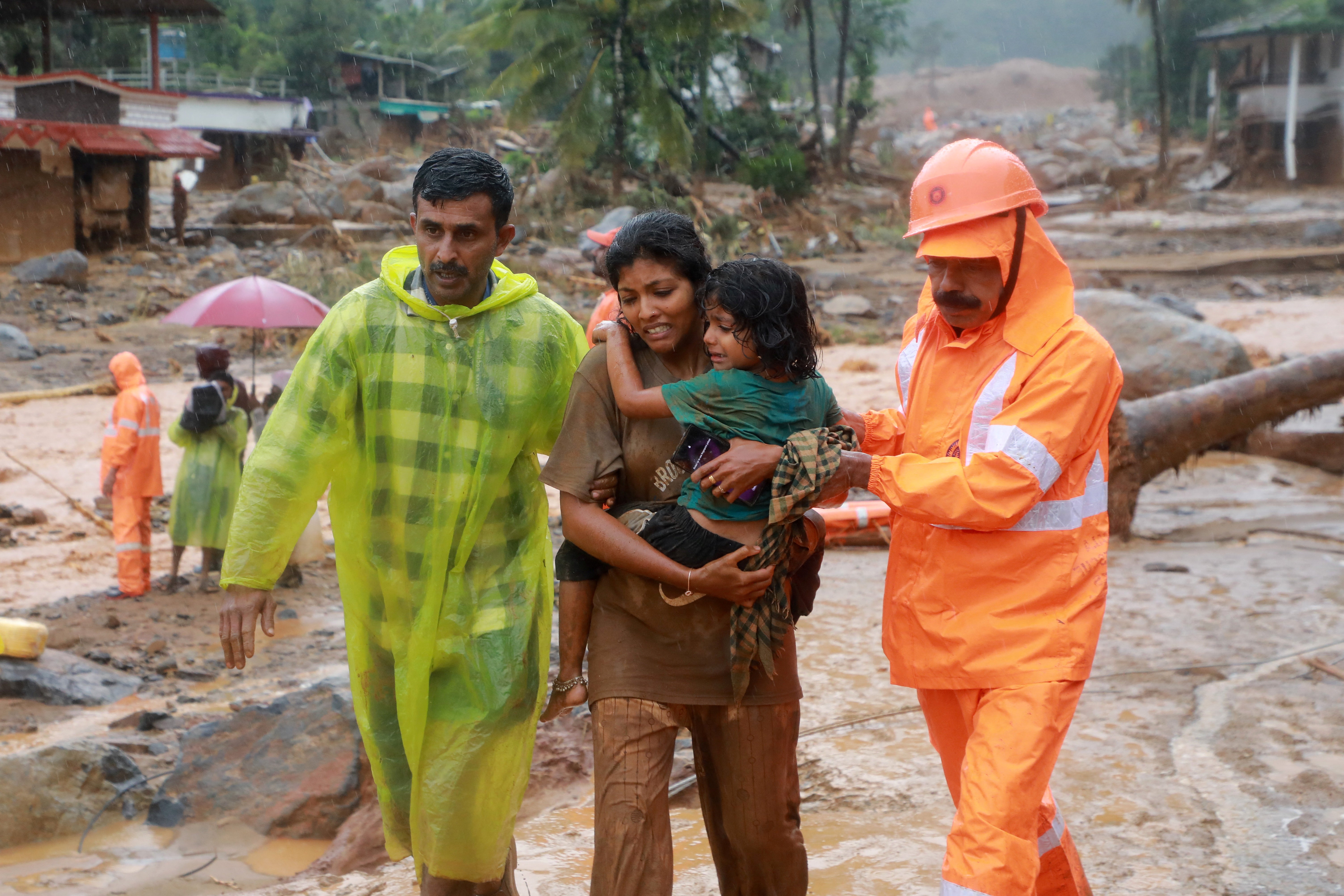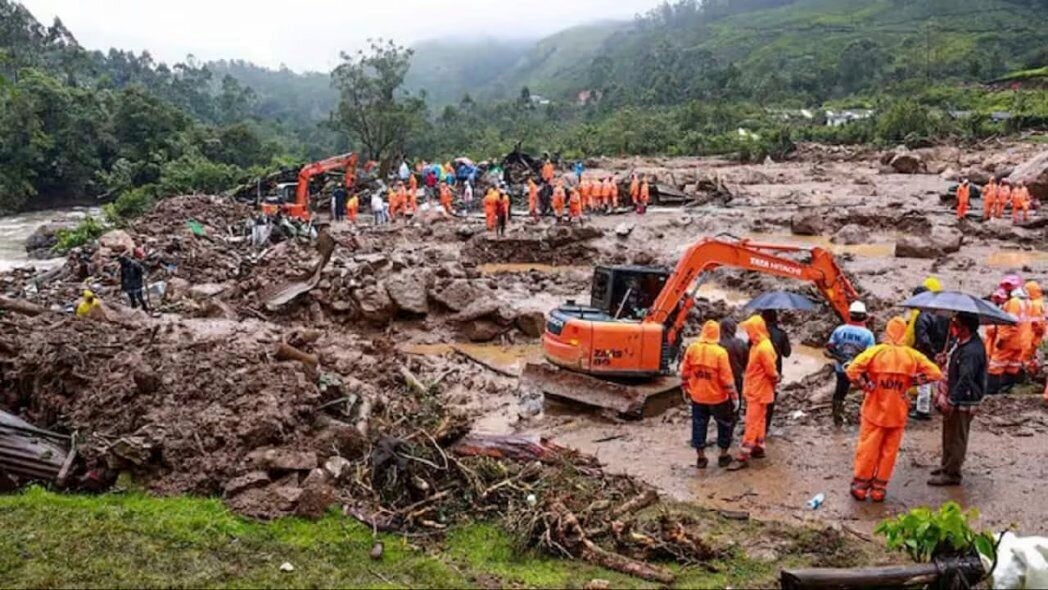Multiple landslides prompted by heavy rainfall in India‘s southern state of Kerala on Tuesday left more than hundred people dead, dozens injured, and many others trapped under debris.
The landslides devastated the hillside villages of Wayanad district, including Mundakkai, Chooralmala, Attamala, and Noolpuzha.
Rescue efforts have been ongoing but bad weather has severely hampered progress, leaving hundreds still feared trapped, officials said.
Health minister Veena George said significant infrastructure damage, including collapsed roads and a bridge that was swept away, was making several areas inaccessible.
“We have to re-establish connectivity. Helicopters will also be brought in, but the weather is bad,” she told news agency ANI.
The scale of the disaster is yet to be fully ascertained, with authorities confirming at least 93 deaths by Tuesday afternoon 4.30pm local time (noon GMT). The local Asianet TV channel put the unofficial toll at 107. Around 116 people were hospitalised with injuries.
Videos from the scene showed relief workers navigating through debris and uprooted trees, while muddy water flowed through the remains of destroyed homes.
Authorities mobilised helicopters to help with rescue efforts and the Indian Army was called in to build a temporary bridge after landslides destroyed one that linked the affected area.

More showers were expected in Kerala throughout Tuesday with authorities shutting schools in parts of the state.
The Indian Meteorological Department (IMD) said Kerala, a state prone to landslides, has had heavy rainfall over its northern and central regions, with Wayanad recording up to 28cm (11 inches) of rain in the last 24 hours.
Prime minister Narendra Modi offered condolences and announced financial aid of £1,900 for the families of the deceased and £475 for those injured.
“Rescue operations are currently underway to assist all those affected. Spoke to Kerala CM Shri @pinarayivijayan and assured all possible help from the Centre,” he posted on X.
Rahul Gandhi, the leader of opposition and former MP from Wayanad, urged the Modi government in parliament to increase compensation for the victims and spoke about “an alarming rise in landslides”.
“Our country has witnessed an alarming rise in landslides in the last few years,” Mr Gandhi told parliament.

“There is an urgent need for mapping of landslide-prone areas and to take up mitigation measures and an action plan to address the growing frequency of natural calamities in the ecologically fragile region,” he said.
The hill state of Himachal Pradesh has also recorded landslides in recent weeks while many regions in north have been flooded.
Scientific assessments show that the climate crisis, fuelled by burning coal, oil and gas, is making rainfall more erratic, with higher amount of rain falling in a short period. The last 13 months have been the hottest on record for the planet with Sunday recorded as the hottest day ever.
Meanwhile, human activities like construction in eco-sensitive regions, is making many hilly areas prone to landslides.
“Monsoon patterns are increasingly erratic and the quantum of rainfall that we receive in a short spell of time has increased. As a result, we see frequent instances of landslides and floods along the Western Ghats,” Roxy Mathew Koll, a climate scientist at the Pune-based Indian Institute of Tropical Meteorology, told The Associated Press.
Mr Koll also said authorities must check on rapid construction activities happening over landslide areas.
“Often landslides and flash floods occur over regions where the impact of both climate change and direct human intervention in terms of land use changes are evident,” he said.

